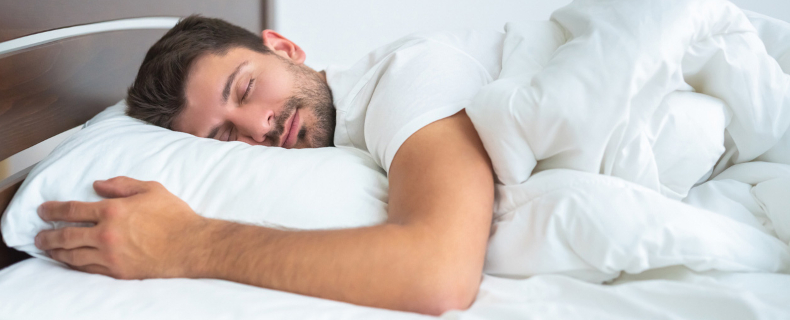If it seems like nearly everyone is tired and sleep-deprived lately, this may not be far from being the case. The Centers for Disease Control has published studies suggesting that almost 70 percent of American adults report receiving fewer than the recommended seven hours of sleep at least one night out of 30 – and over 25 percent are not getting that seven hours for more than 15 nights a month. In fact, more than 10 percent report not getting at least seven hours of sleep every, single night. In 2015, the CDC went so far as to declare that “insufficient sleep is a public health problem,” adding in late 2022 that the problem did not change from 2013 to 2020.
Life, in general, can sometimes lead to a night or two less sleep than preferred. If, however, a person is consistently not receiving enough sleep, it may be time for a lifestyle change or screening for a possible health issue. What sorts of changes? And what health issues might be disturbing sleep?
Routine
For centuries, scientists have observed the existence of something called a circadian rhythm. First discovered in plants, the circadian rhythm determines, in part, when leaves open and close. Human beings have circadian rhythms as well, helping the brain determine when to release hormones that promote wakefulness and hunger. Research on human circadian rhythms has been deemed so important that the 2017 Nobel Prize in Physiology and Medicine was awarded to three scientists who have studied it.
Circadian rhythms can be influenced by consistent sleep and wake times, so one way to get more sleep is to have a set time for bed and a set time to wake. Ideally, the bedtimes and wake times will consistently ensure between seven and eight hours of sleep per night. The brain will then be better conditioned for sleep and wakefulness and will produce the appropriate chemicals on time.
Keeping a consistent sleep schedule does not mean having to resist the urge to stay awake on Friday and Saturday nights and sleep in on Saturday and Sunday mornings. However, the benefits during the week of maintaining a sleep schedule will outweigh any missed opportunities for staying up late.
Circadian rhythms are also affected by artificial light, especially the blue-tinted light produced by electronics. For the best possible sleep, electronics should be avoided 30 minutes before bedtime, and the room should be as dark as possible.
Training the brain
The brain is prone to make associations between activities and places where those activities occur. It is, therefore, important to make sure the brain does not associate bed with working or watching television, lest it unconsciously resists sleep and tries to stay awake for these activities, even when they are not occurring. The urge to read, look at electronics, and watch television in bed should be resisted.
Training the body
Regular exercise helps with sleeping; in fact, a light workout will help sleep no matter when it occurs, even right before bed. High-intensity training just before bedtime, however, should be avoided, as it will stimulate the production of chemicals that make falling asleep more difficult.
Eating and drinking
It stands to reason that caffeine, a chemical known to produce wakefulness, should be avoided in the hours leading up to bedtime. Alcohol right before bed can also cause difficulties sleeping, and so can eating big meals since the muscles and organs needed for digestion must stay awake to handle the intake.
Winding down
The brain and body can also be prepared for sleep by having a winding-down routine. This can take the form of reading (though ideally in low light and not in bed), some light exercise, or taking a warm shower.
Checking for health conditions
One possible cause for not getting enough sleep (or for feeling tired even after a full eight hours in bed) is a condition called sleep apnea. “Apnea” is Greek for “no breath,” and that essentially describes the condition: something impedes a sufferer’s breathing at night, causing the brain to wake itself up to restore breathing. The most common type of sleep apnea is known as obstructive sleep apnea. As its name implies, this is when breathing stops because the airway is obstructed. Typically, this occurs because the throat muscles relax and block the flow of air into the lungs.
Sleep apnea can be diagnosed by a sleep study and/or a doctor. It can be treated using a variety of methods, including lifestyle changes, surgery, a Continuous Positive Airway Pressure (CPAP) machine, or an oral appliance created by a dentist.
Getting better sleep
Insufficient sleep is a rising concern among American adults, but it need not be a permanent condition. Changes in behavior, and diagnosing and treating conditions like sleep apnea, can do wonders to ensure a good night’s rest.
Sleep Apnea Treatment in Okemos, Lansing, and East Lansing, MI
To find out more about sleep apnea and possible treatments or to schedule a consultation, please call Tenaglia Smiles at (517) 940-8684 or contact us online to request an appointment today.

